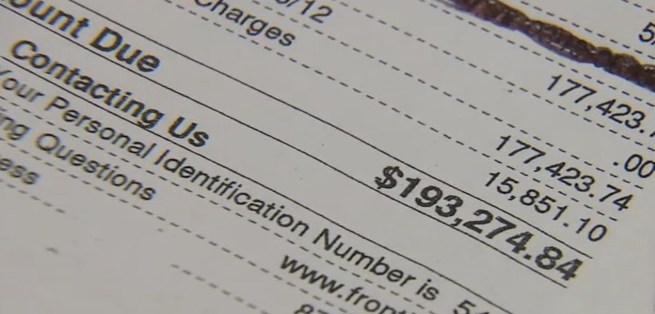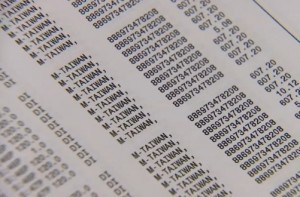 When the Oasis Therapeutic Foster Care Network in Albany, Ohio opened their April bill from Frontier Communications, they had the shock of their lives.
When the Oasis Therapeutic Foster Care Network in Albany, Ohio opened their April bill from Frontier Communications, they had the shock of their lives.
It totaled $177, 423.
The multi-page phone bill had pages of international calls, all to the same number in Taiwan, most lasting 120 minutes. A two hour phone call to Taiwan runs Frontier customers $607.20 each, and with more than 450 calls listed on April 22, the agency’s bill ran up fast.
A subsequent bill added another $16,000 in calls to Taiwan the first day of the next billing cycle.
Kay Wheeler, the administrator of the non-profit care network, said that phone bill could have put the agency in financial peril. Oasis almost never makes international calls, and their usual bill runs an average of $250 a month.
 Frontier, to its credit noticed the unusual calls, many of which ran simultaneously on that single evening in April, and was able to eventually block them. Frontier also called the agency alerting them to the unusual calls, but that did not stop the company from initially billing Oasis nearly $194,000.
Frontier, to its credit noticed the unusual calls, many of which ran simultaneously on that single evening in April, and was able to eventually block them. Frontier also called the agency alerting them to the unusual calls, but that did not stop the company from initially billing Oasis nearly $194,000.
Frontier initially told Wheeler they were willing to negotiate the long distance charges down to $3,000, but the company later credited the non-profit the entire amount.
The company suspects the PBX business phone system Oasis uses was hacked. The system, installed by a third party provider, still had its default password in place. With that password, a hacker could reprogram the phone system in a myriad of ways, including diverting calls abroad.
Unfortunately for Wheeler, and other business customers that wish to avoid international long distance fraud, blocking calls to international numbers does not come free. The price of peace of mind with an international call block: $195.
Wheeler considers it a small price to pay to prevent fraud like this from happening again, but Jim Barnet, a Stop the Cap! reader in Ohio who shared the story, wonders why anyone needs to charge such a high amount to block potentially fraudulent calls.
“It’s a software block, enabled with a few commands on their computer, and it stops fraudulent long distance calls Frontier often has to eat,” Barnet writes. “So why in the world discourage business customers from signing up with a ridiculous $200 fee?”
Frontier has released a comprehensive guide to help companies avoid this kind of fraud.
[flv width=”640″ height=”358″]http://www.phillipdampier.com/video/ONN Fraudulent Bill 6-19-12.f4v[/flv]
The Ohio News Network covered the enormous phone bill and talked with Frontier Communications about how this kind of calling fraud happens. (2 minutes)


 Subscribe
Subscribe




